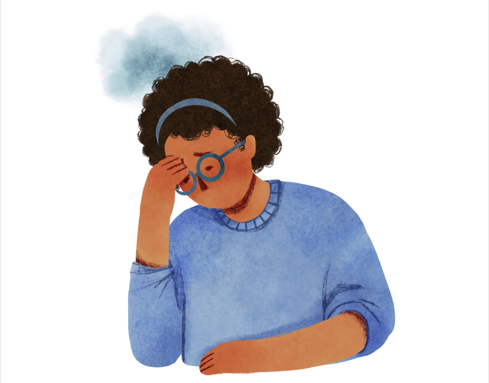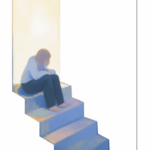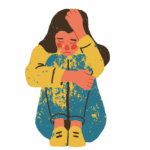Bipolar Disorder: Split Personality: A Myth
Bipolar disorder is a challenging disorder which creates disturbance in living, but it is not hopeless and can be cured. Balance is just what is needed mostly as the journey involves ups and downs. People with bipolar disorder go through mood variations which are very extreme, severe and disturbing. A person goes through unusual changes in mood and energy level art which may vary from hypomania or mania that is depression, sadness or low energy and high energy or excitement respectively. All the activities a person does whether it is work, being in relationship or sleeping, bipolar disorder does interfere and disrupt a lot. Mood swings are the major reason for bipolar disorder as they do regulate what a person will do or feel.Bipolar disorder is treatable with a combination of therapy and medication while managing lifestyle with the symptoms.
Causes of Bipolar Disorder
- Bipolar disorder can be caused due to genetics that is running in the family. There is an increased risk of bipolar disorder when one has a partner or sibling with the disorder.
- Chemical imbalances in the brain that manages mood regulation can cause bipolar disorder.
- Anyone suffering from any stress or trauma can experience the symptoms of bipolar disorder.
- Suffering from any stress or trauma can experience the symptoms of bipolar disorder.
- Having a lifestyle like sleeping less, being addicted to alcohol or drugs which leads to bad health can cause bipolar disorder.
Types of Bipolar Disorder
- Bipolar I Disorder
In bipolar l disorder manic episodes last a minimum of 7 days and are usually necessary by hospitalisation and it is typically followed by depressive episodes. It is also called Manic Depressive Disorder. Manic episode where one behaves abnormally with an extremely irritable mood and high energy. One can feel like being on an emotional rollercoaster which is riding between highs of mania and the lows of depression.
There are also some symptoms which do not get in the way of daily life. People with Bipolar l Disorder mostly also go through depression. One could go through an intense emotional phase which is more than usual due to which one might act very differently then how they normally are, like being super active or doing risky things without thinking about the repercussions or sleeping very less. Manic episodes involve increased energy or having a very high self-esteem or could be spending excessively or wanting to have a lot of sexual desires.
- Bipolar II Disorder
In bipolar ll disorder hypomania episodes occur which are less severe forms of mania but there is major depression. Hypomania does interfere with lifestyle, it is not severe but does impair at a certain level. Hypomania is like being on high energy. One could be the life of a party and behave in a quite pleasant way when they are around people but hypomanic episodes can go the way to full mania that affect a person’s ability to function. It could also mean one can feel changes in their nature like increased talkativeness, racing of thoughts, being easily distracted, finding it very hard to keep still, there is rapid speech issue and a very less need for sleep, rapidly changing thoughts etc. It persists for at least four days with no hallucinations or delusions, it is less impaired than mania and not really necessitates hospital care.
- Cyclothymic Disorder (Cyclothymia)
In Cyclothymic Disorder (Cyclothymia) there are hypomanic and depressive characteristics of mood fluctuations. There are mild symptoms but they do persist for at least 2 years. The patterns of one’s behaviour are unpredictable and irregular. It involves ups and downs in mood.
Symptoms of Bipolar Disorder
- One suffering from mania might experience extreme excitement or happiness, feeling very energetic with very little sleep needed, being over confident, easily getting distracted and not able to focus, being impulsive and behaving recklessly, talking rapidly or switching between topics.
- Hypomania is similar to mania but it is less severe behaviour, one may act creative or productive but still can feel disturbing if it is not under control.
- Suffering from lows that is depression one may feel hopelessness and extreme sadness, feeling tired all the time and unable to get out of bed, losing interest in activity which one use to enjoy, trouble in sleeping either sleeping too much or two little, difficulty in making decisions or concentrating, getting suicidal thoughts.
- Sometimes symptoms of depression and mania are experienced simultaneously resulting in mood instability which is often called mixed episodes.
Disruption due to Bipolar Disorder
Having mood swings is not considered as bipolar disorder, it does interfere in many areas of life.
- At work unpredictable or unusual energy levels may impact one’s reliability and performance.
- In relationships extreme mood swings can develop misunderstandings leading to arguments or fights.
- During mania episodes impulsive purchasing can lead to financial issues.
- Stress, irregular sleep cycle and poor appetite will damage physical health.
- Consuming drugs, having anxiety or getting suicidal thoughts can effect the mental health of a person badly.
Conclusion
Living with bipolar disorder is not impossible, rather difficult. It’s a muddy path of ups and downs but balance can be achieved. It requires proper treatment, education and support of loved one’s. Many artists, authors and celebrities who suffered from bipolar disorder have succeeded fighting their battles leading to their healing journey. It is a chronic illness but with therapy the symptoms can be controlled. A person suffering from bipolar disorder must keep in mind that they are not alone, there is always help available for them, they just need to take one step for themselves to start their healing journey, as seeking help from an experienced professional would help them get better. Healing or recovery doesn’t mean being cured, it is the beginning to find balance or being able to handle what one is experiencing, getting better with decreasing episodes and being able to accept what is happening to a person so that they can focus more on finding balance. Also sharing experience to other individuals who experience the same struggle of bipolar disorder will give them strength and power to fight their battles.



